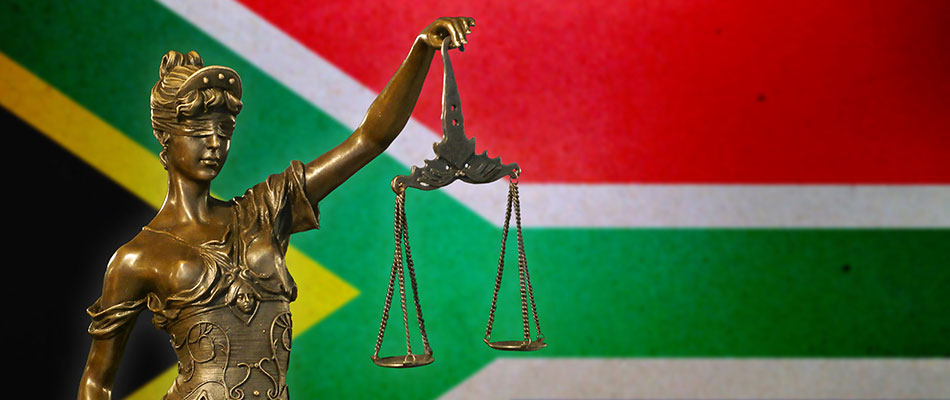In South Africa, the Law of Delict governs situations where one person’s actions or omissions cause harm to another. It is an important part of civil law, ensuring individuals can seek justice and compensation for wrongful acts that affect their safety, property, or reputation. This area of law covers many scenarios, from car accidents and medical negligence to defamation and emotional distress.
The Law of Delict helps maintain social order and fairness by addressing these issues. Whether it is dealing with personal injury or financial loss, understanding this law is essential for both individuals and businesses to manage legal disputes and ensure proper compensation for harm caused.
In this article, we will explore the principles of the South African Law of Delict, the 5 elements of delict, and more.
Table of Contents
What is the Law of Delict?
The law of delict in South Africa refers to the area of the South African legal system that deals with civil injuries or harm caused by one person to another. It governs situations where someone’s actions or omissions result in injury, damage, or loss to another party. This area of law focuses on determining liability and ensuring compensation for those affected by unlawful conduct.
This law covers various issues, such as personal injury, property damage, and defamation. To prove a claim for damages, certain elements such as fault, causation, and harm must be proven. Only after these elements are proven can a party seek compensation for the harm caused. This process helps ensure that those responsible for causing harm are held accountable and that victims receive appropriate redress.
Know about the Law of Contract in South Africa Here
Types of Damages in Delict
The South African Law of Delict is an important part of the legal framework as it helps provide compensation to individuals who others have harmed. Delict damages aim to help restore the standing of the victim to what it was before the wrongful act that was committed toward them.
Under this law, the victim can seek damages under 3 primary categories, which are listed below:
1. Patrimonial Damages
This is also known as financial damages that result from any harm a person has suffered on themselves or on their property. Patrimonial damages take into account financial losses, which can be quantifiable. These can further be divided into:
- Medical Expense
- Loss of Income
- Cost of Repairs
- Property Damage
2. Non-Patrimonial Damages
This refers to non-financial harm that is inflicted upon the victim but which cannot be measured in a monetary amount. Non-patrimonial damages can be further categorised into:
- Pain and suffering
- Disfigurement
- Psychological harm
- Injury that can lead to inability to participate in hobbies and activities
3. Pure Economic Damages
This is pure financial loss, which does not include any physical harm to the victim or to their property. These are damages that occur due to misinformation or misconduct. These can be further divided into:
- Negligent Statements or Advice
- Loss of Profits
- Defamation
5 Elements of Delict
In the law of delict in South Africa, there are five elements that must be proven for a successful claim. Each element is important in determining whether an unlawful act has occurred and if the injured party is entitled to compensation. Understanding these elements is essential for anyone dealing with delictual claims in South Africa. Learn more about these 5 elements of delict below:
1. Act
The act, or conduct, is the foundation of delictual liability. It refers to what the person did, whether by action or omission. The act can be positive (committing an act) or negative (failing to act). For example, a person may cause harm by either directly harming someone or by failing to prevent harm when they have a duty to act.
2. Wrongfulness
Wrongfulness means that a person’s actions violate a legal right or interest. This is determined by whether the act is seen as unacceptable by society. If the conduct goes against what is considered legally and morally right, it is deemed wrongful. This includes the concept of “boni mores,” where the conduct is judged against community standards to determine if it was inappropriate or unjustifiable.
3. Fault
Fault refers to the mental state of the person who caused harm. It can be intentional (dolus) or negligent (culpa). Intention involves deliberately causing harm, while negligence refers to a failure to act with reasonable care, leading to harm. The defendant must be capable of fault (culpae capax), meaning they must understand their actions and their consequences.
4. Causation
Causation connects the wrongful act to the harm caused. There are two types: factual and legal causation. Factual causation is tested by asking, “Would the harm have happened if not for the defendant’s actions?” Legal causation looks at whether the harm was a predictable result of the defendant’s actions.
5. Damage
Damage is the harm suffered as a result of the wrongful act. It can be physical, emotional, or financial. For the damage to be compensable, it must be recognised as legally relevant. The injured party must show that the defendant’s actions caused the harm and affected their property or personal rights.
Know What is a Medical Law Here
Delictual Remedies in South Africa
Delictual remedies in South Africa aim to compensate individuals who have suffered harm due to the unlawful conduct of others. Under South African law of delict, three main actions are used to seek compensation for different forms of harm. These remedies ensure that those responsible for damage, whether to property, personality rights, or physical well-being, are held accountable for their actions. Learn more about these remedies below:
1. Actio Legis Aquiliae
This remedy is used when harm results in patrimonial loss, such as the destruction of property. In order for the claim to be successful, the injured party must prove that the defendant acted negligently or with fault, leading to the damage. The plaintiff is entitled to recover the value of the property at the time of loss, plus any consequential damages.
2. Actio Iniuriarum
Actio iniuriarum is a legal action for non-patrimonial loss, specifically when someone’s personality rights have been violated. The plaintiff must show that the defendant’s conduct caused harm to their personal dignity or reputation. This remedy helps protect individuals from wrongful harm that affects their personal rights and standing in society.
3. Action for Pain and Suffering
This remedy is available when harm results in physical pain or emotional distress, such as bodily injury or mental anguish. The injury must be directly related to physical harm suffered by the plaintiff. It covers intangible losses, like suffering and disfigurement, that cannot be measured in monetary terms but still warrant compensation under the South African law of delict.
Legal Considerations in Delictual Claims
When making a delictual claim, it is essential to understand the legal framework that governs how these claims are handled. Various aspects of South African law of delict impact the outcome, including time limits, potential defences, and how damages are assessed. Each of these factors plays an important role in determining the success of a claim and the compensation awarded. Let us know the legal considerations in delictual claims below
- Prescription: Delictual claims must be brought within a specified time frame, known as prescription. If a claim is not initiated within this period, it may be dismissed as time-barred.
- Contributory Negligence: In some cases, the defendant may argue that the plaintiff contributed to their own harm. If proven, this could reduce the amount of compensation awarded to the plaintiff.
- Vicarious Liability: Employers may be held responsible for the wrongful acts of their employees committed during employment. This means the employer can be liable for actions done on behalf of the business.
- Quantum of Damages: The amount of compensation awarded in delictual claims depends on the harm or loss suffered by the plaintiff. Factors such as medical costs, loss of income, and pain and suffering are considered in calculating damages.
Conclusion
The South African law of delict plays an important role in ensuring justice for individuals who have suffered harm due to the wrongful actions of others. By understanding the 5 elements of delict, the different legal remedies, and the factors involved in handling delictual claims, individuals can gain a clearer understanding of this area of law and manage its complexities more effectively. Whether it is about property damage, personal injury, or defamation, the South African law of delict provides the necessary framework for accountability and compensation.
Advance your legal expertise with Regenesys Law School! Enrol today and equip yourself with the knowledge and skills needed to excel in the legal field
South African Law of Delict? – FAQs
What is the South African law of delict?
The South African law of delict governs civil wrongs where one person’s actions cause harm or loss to another.
What are the five elements of delict?
The five elements are act, wrongfulness, fault, causation, and damage.
What is prescription in delictual claims?
Prescription refers to the time limit within which a delictual claim must be initiated to avoid being time-barred.
What is contributory negligence in the South African law of delict?
Contributory negligence occurs when the plaintiff is found to have contributed to their own harm, potentially reducing compensation.
What is vicarious liability?
Vicarious liability holds employers responsible for the wrongful acts of their employees committed during the course of employment.
How is the quantum of damages determined in delictual claims?
The quantum of damages is based on the harm suffered, considering factors like medical costs, loss of income, and pain and suffering.






